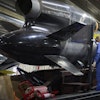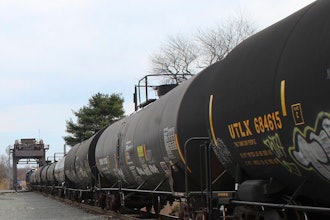 The merchant market for carbon dioxide is some 20 million metric tons of annual consumption; and this does not include the huge quantities of CO2 which are dedicated to large energy production (enhanced oil recovery — EOR), and large chemical manufacturing and many niche uses for the commodity. All of this 20 million metric tons is producing revenues for the feedstock company (such as the ethanol facility), plus various parties downstream of the raw feedstock in many cases. About 40 percent of the global total CO2 sales occur within the United States. To follow would be Japan and the European Zone in terms of merchant CO2 usage.
The merchant market for carbon dioxide is some 20 million metric tons of annual consumption; and this does not include the huge quantities of CO2 which are dedicated to large energy production (enhanced oil recovery — EOR), and large chemical manufacturing and many niche uses for the commodity. All of this 20 million metric tons is producing revenues for the feedstock company (such as the ethanol facility), plus various parties downstream of the raw feedstock in many cases. About 40 percent of the global total CO2 sales occur within the United States. To follow would be Japan and the European Zone in terms of merchant CO2 usage.
It is increasingly important to acquire revenues from the sale of CO2 as one of the primary co-products from fermentation and biofuels; plus depending upon destination and mode of utilization, such commercial use of CO2 may take the pressure off further concerns for CO2 emissions mandates and further options for handling the subject of carbon offsets and sequestration concepts.
The goal in the end is to make money, simply put; as it relates to the biofuels trade at large, as well as allied energy and chemical projects with a CO2 by-product. Therefore, it is clear that all biofuel manufacturers become keen to the markets, costs, requirements, and options for selling CO2 in order to develop premium revenue opportunities v. simply facing the environmentally demanding alternatives such as any legislative mandates which may take place on a national, regional, state, or other basis, which relate selectively to CO2 emitters.
There are premium alternatives in most markets for the sale of CO2 via one method or another, to one market or another, and all added revenues to the overall biofuels project has a significant impact on profits over the long haul. Also, a few cents to a dollar or two more in revenues from CO2 sales can represent thousands to millions of dollars of added value to the project; and added value is the key to success in this industry.
Fully evaluating and understanding the applications as traditional use in the merchant trade requires expertise, as would bringing together the right elements in terms of markets, and the ultimate revenue stream mix to the project. Be leery of what the large gas companies’ offer in terms of price per ton, and an estimate of market value when considering a best means of developing a revenue stream from the biofuels project.
CO2 in Merchant & Captive Settings
The so-called merchant sector (what is sold to the manufacturers of foods beverages, and many day-to-day consumer or commodity goods) is the heart of the merchant CO2 business; however, captive settings for the product in (sometimes) less refined forms can yield different revenue standards due to large volumes of the commodity sometimes delivered much differently — sometimes via pipeline, for example.
In most developed world markets, about 70 percent of the merchant (refined) product is sold to food and beverage manufacturing operations for chilling, freezing, gas modified atmospheric packaging (MAP), and beverage carbonation. Beyond this is often a wide selection of industrial uses, including PH reduction uses, agricultural applications, metallurgical and mining uses, welding gas usage, plus solvent use; also many dry ice applications, gas well stimulation, and chemical feedstock use.
When working in the developing world, most of the product is dedicated for use in beverage carbonation, and some cylinder gas for fountain beverage and welding gas operations.
Some markets are highly dedicated to strictly EOR (enhanced oil recovery)/natural gas well stimulation, or perhaps food processors in a highly concentrated use; or sometimes a concentrated market of chemical manufacturing or similar use. Any of this represents special pricing, often due to large sums being consumed, thus special shipping methods of the carbon dioxide — either raw product from a biofuels operation; or refined, liquefied, and further processed.
Today, there are the developments in often referred — to third generation biofuels, such as algae as a CO2 sink or consumer, which in turn is used for production of biofuels. In this case, algae serves the duel purpose as a carbon sink or consumer (making for environmentally friendly) sites which consume carbon — beyond what has been discussed many times before with respect to biofuels development beyond grain and sugarcane based feedstocks.
Prior to these times, such as the emergence of algae as an up and coming segment of the biofuels sector, and a good carbon sink; captive uses for CO2 such as enhanced coal bed methane recovery (CBM), sodium bicarbonate manufacturing and methanol production were mentioned. The later remain options, however.
In the end, the goal is to make money, obviously with environmentally friendly considerations maintained; as well as finding and utilizing carbon sinks when possible. However, with so many of the initiatives from an environmental perspective moving slowly, we need to focus on economic opportunities. The environmental considerations will have to regain more support over the time ahead, as regulations are passed.
For the time being, it is equally, and highly important to make the most money from the sale of CO2 to a wide variety of markets, and when finding, developing, and fully extracting the greatest ‘bang for the buck’ it is essential to best employ the mechanisms used in the markets, their composition; the costs and requirements for CO2 recovery and utilization in the markets — which can be fully developed to achieve maximum results by available expertise.
Sam A. Rushing is a chemist with decades of carbon dioxide and cryogenic consulting and merchant industry expertise to offer all biofuels- and CO2-related projects globally. For more information, please call 305.852.2597, e-mail [email protected] or visit www.carbondioxideconsultants.com.
Copyright 2010; Biofuels Digest; All rights reserved


















